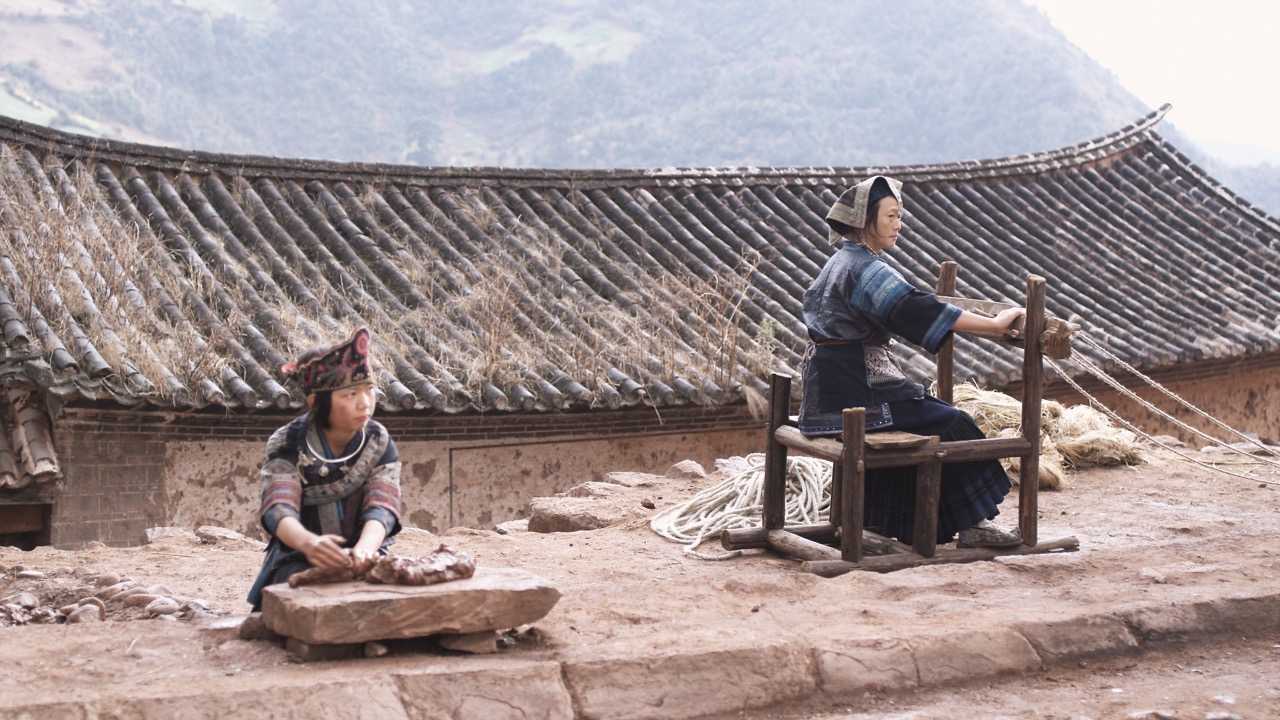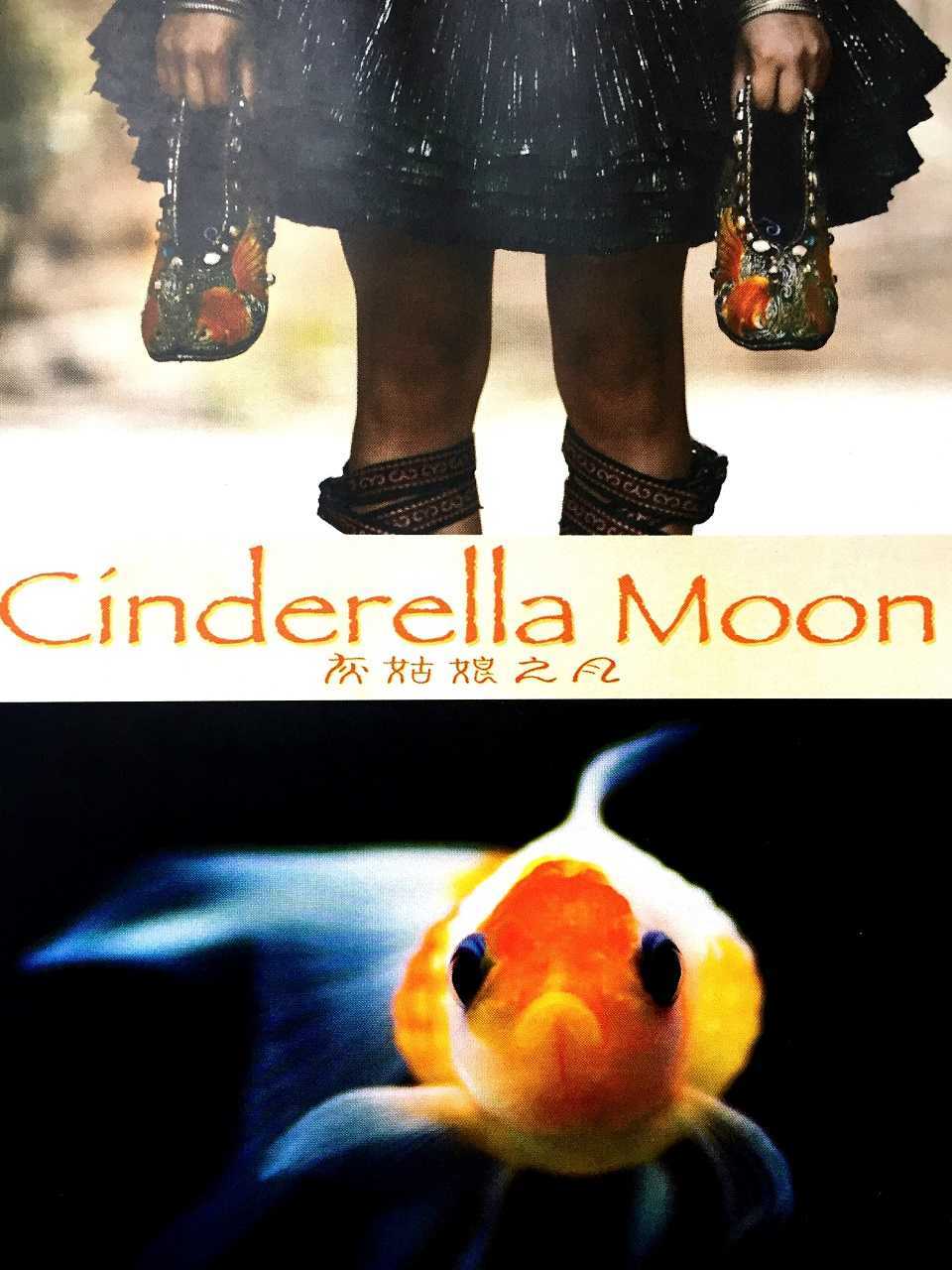aka Little Sister
China. 2010.
Crew
Director/Screenplay/Producer – Richard Bowen, Photography – Wang Yu, Music – Robert Miller, Production Design – Zhai Tao. Production Company – Louisa Productions/Half the Sky Foundation.
Cast
Xiao Min (Mei Mei), Wang Caiping (Stepmother), Zhang Jie (King), Li Shengquan (Head Elder), Chi Peng (Dowager), Zhang Genrui (Matchmaker), Qiu Lin (Shaman), Tang Zuohui (Astronomer), Dong Junjie (Head Elder’s Son), Zhang Zhengyuan (Eunuch), Hu Yinzi (Big Sister), Badeng Xirao (Merchant), Li Wenhua (Father), Du Fengping (Mother)
Plot
In ancient China, Mei Mei’s mother dies not long after she is born. As she grows up, her father dies while fishing and Mei Mei is left in the hands of her harsh stepmother. The stepmother takes and sells the pottery intended for Mei Mei’s dowry – all that Mei Mei has is the shoes her mother left her, which have magical powers. The Moon then stops in the sky and will no longer move. Mei Mei believes it is in sympathy with the way she is being treated. The young prince king fears that this will cause the world to end. The stepmother plans to marry Mei Mei off to the merchant’s son but Mei Mei defies this and enters the dance being held before the prince king. There the magic of the slippers causes her to fly through the air. The prince immediately becomes captivated by her. After she leaves one of the shoes behind, he sets out through the land to find her. However, this makes the stepmother even more determined to subjugate Mei Mei.
Cinderella Moon makes the interesting claim that it is telling the original version of the story of Cinderella. It is based on Ye Xian, a story written by Tuan Chengh Shi, a court official of the Tang Dynasty in 1st century China. Tuan Cheng Shi published Ye Xian in Miscellaneous Morsels from Youyang (853), a collection of folk tales and stories that he wrote down.
There are several things to note about Cinderella Moon and its promotion. While the film makes the claim that Ye Xian is the first telling of Cinderella, there are other earlier contenders from Greek tales. Nor is there any evidence that this story influenced Charles Perreault or the Brothers Grimm in their classic tellings that we are familiar with today. Furthermore, the film adaptation we have here adds many elements that takes the story closer to the Western conception of Cinderella – in the original, the role of what we know as the Fairy Godmother is essentially performed by the magic fish that turns up and is cooked by the stepmother. There is also no aspect about The Moon being stilled in its orbit in the original.
The film also claims that the film is shot in the Yunnan Province, which is in the Chinese-occupied Tibetan Autonomous Prefecture, and that it is known as Shangri-La as though this is some magical place, seemingly unaware that Shangri-La was a fictional location created by British author James Hilton in the novel Lost Horizon (1933) – see the film Lost Horizon (1937) and its musical remake Lost Horizon (1973) – who never visited Asia during his lifetime. Certainly, the Yunnan province has claimed that it is the authentic location of Shangri-La in an effort to promote tourism (but this did not happen until 2001).
Richard Bowen is an American cinematographer with a cv that includes works like Belizaire the Cajun (1986), The Little Rascals (1994), Fair Game (1995), Major Payne (1995) and others. He makes his directorial debut with Cinderella Moon. It marks the occasion where he has travelled to shoot the entire film in China, using Chinese/Tibetan locations and cast. The film is co-produced by Half the Sky Foundation, a non-profit organisation based in Hong Kong to help Chinese orphans (of which Richard Bowen and his wife are the founding directors, they themselves having adopted two Chinese orphans).

I am not entirely convinced about the case that Cinderella Moon makes that it is telling the original version of Cinderella. Mostly it feels as though Richard Bowen has latched onto the Tuan Cheng Shi story as an opportunity to transliterate the familiar version of Cinderella into Chinese culture. This certainly leads to some interesting interpolations – where Cinderella is less treated like a slave by her stepmother than she comes from poor peasantry and is being negotiated off for an arranged marriage. There is only a single stepsister, although she does not do much – the cruelty she represents is more the tradition of Mei Mei having to wait until the older sister is married before she is allowed to be. This is a version also lacking in Fairy Godmothers and transformed pumpkin coaches and mice coachmen. The glass slipper now becomes a pair of traditional slippers left by Cinderella’s mother that give her the magical ability to fly at a formal ball held for the prince.
The elimination of the fairy godmother, mice coachmen etc also makes for a far less fantastical version of Cinderella Moon than we usually get. Indeed, what we have is a film that seems to be setting out to offer more of a cultural portrait – Richard Bowen’s focus throughout is on the pageantry of the costuming, the lusciousness of the scenery, the earthiness of life in the village. (It is a beautifully photographed film). When elements of fantasy do occasionally intrude – The Moon stopping (despite which tides still seem to come in and out) and the flying shoes – it feels more like a case of Magical Realism than it does the fanciful fantasy that a fairytale operates on.
The main problem with Cinderella Moon is that I felt I was watching a cultural film about the lives of people in rural dynastic China rather than I did a fairytale adaptation or even a fantasy film. It seems more focused on its portrait of the people and region than it is in providing any of the emotional catharsis that you should feel in a fairytale. In other words, the film engages on a pictorial level rather than in terms of its emotional resonance. You never care much about the downtrodden Mei Mei. Part of the problem here is that Richard Bowen is clearly working with a non-professional cast of actors. Most of them are capable but the performances never stand out and imprint themselves on the film. Although part of the problem with this might be that nuances of the performances could well have been lost in the dubbing – see below.
My biggest problem with the film was in being forced to watch a dubbed version of it. Screening at the R2R Festival for international youth films at Vancouver’s Rio Theater, the film started off as a subtitled version but the festival organiser then ordered the film stopped and restarted in an English-dubbed version. Let us set aside for a moment the irritation of going to watch a theatrical screening and finding that all you are watching is a dvd. To me, if you are screening a series of what is being advertised as international youth films then not allowing the film to be seen in its intended native form but having to whitewash it out so that it is acceptable for English-speaking audiences ends up being an insult. (Not to mention insulting the number of Chinese people in the audience by saying that hearing something in their own tongue ranks as less important than forcing the English-speakers in the audience to be stressed by having to read subtitles). Every film festival the world over will always present a film in its native tongue in order to preserve as much of the filmmaker’s original intent as possible.
However, the problem with the dubbing of the film is simply not festival organisers unable to think beyond their own cultural noses but that there was such a bad job done with it. Did they really have to give all the Chinese people simplistic singsong voices filled with lallation and no articles like the bad racial characters out of 1940s films? Did they have to turn the grandmother into a gumless witch cackling as though she had lost all her marbles or make the overweight kid a bumblingly stupid buffoon? All of these are simply racist caricatures and end up thoroughly insulting a film that in every other way seems determined to show respect to its culture.
Trailer here


